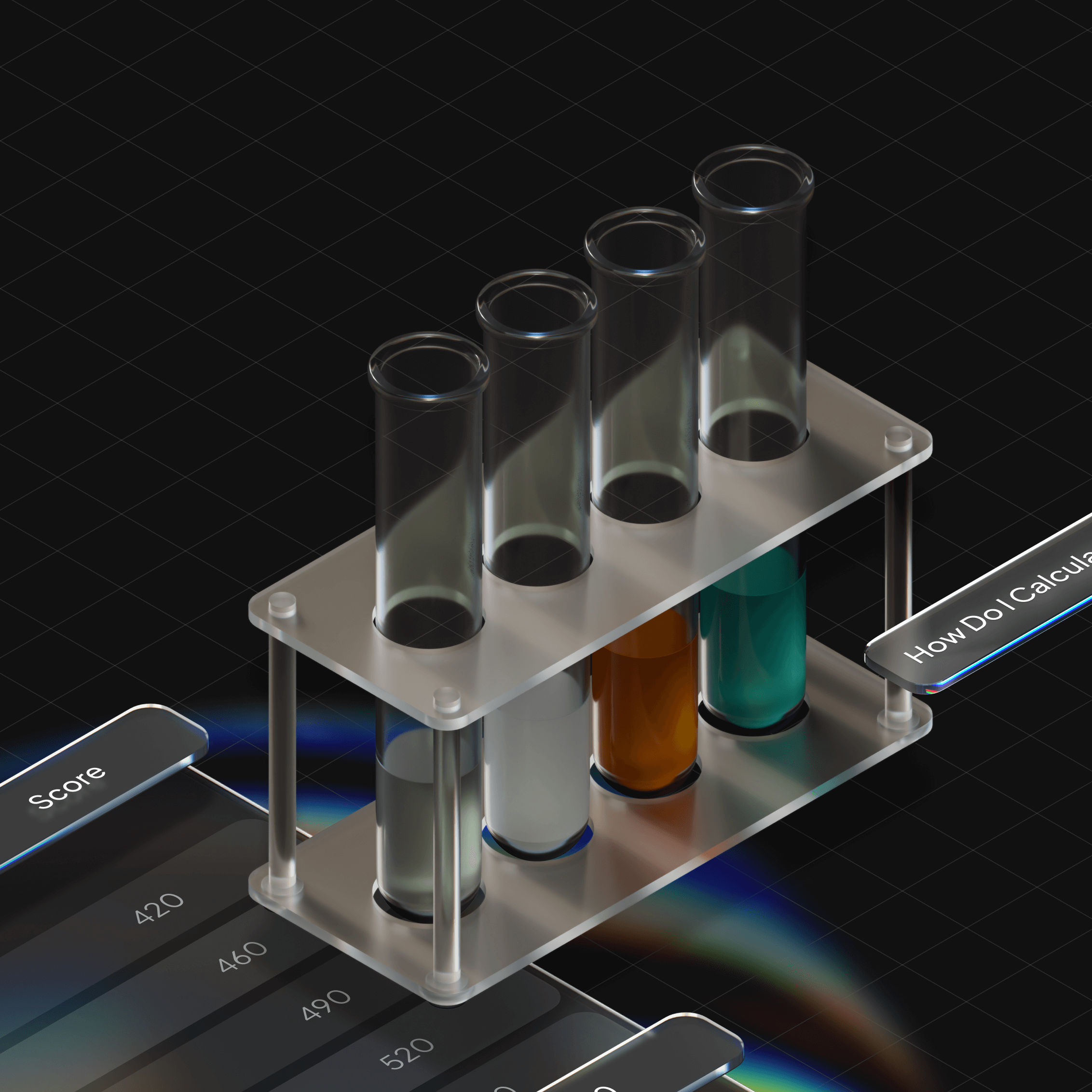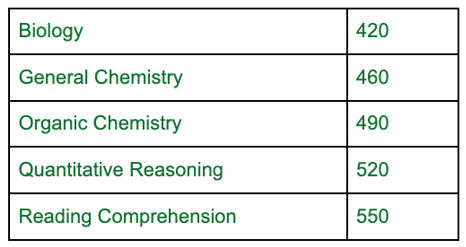
DAT Academic Average Calculation
The Academic Average is the most important component of your DAT score. Dental school admission committees particularly value it highly because it is a key indicator of how well you performed on the DAT.
I. How Do I Calculate the DAT Academic Average?
The Academic Average is the rounded average of a candidate’s scale test scores in Biology, General Chemistry, Organic Chemistry, Quantitative Reasoning, and Reading Comprehension. Note: The Academic Average does not include Perceptual Ability scores.
For example, if your DAT score in these subjects are:

Your Academic Average would be (420+460+490+520+550)/5 = 488 ≈ 490
Since DAT scores are now reported in increments of 10, your Academic Average (AA) is rounded to the nearest tens place. For example, an average of 488, as seen above, would be reported as 490, while a 421 would round down to 420.
II. What Is a Good Academic Average Score?
The higher your Academic Average DAT score is, the better. Ideally, we recommend students aim for a high DAT score—or an Academic Average of at least 440–421+—to stay competitive in the admissions process. However, if your score falls below this, it’s not the end of the world. Lower DAT scores can still be offset by strengthening other parts of your application, such as your GPA, personal statement, or dental experience. It’s also important to remember that “good” is a relative term. What qualifies as a competitive DAT score varies from school to school. Hence, a score that may be below average at a highly selective program could still be well above average at a less competitive dental school. That’s why we recommend researching the average DAT scores of recently admitted classes at the schools you’re applying to. Your total performance across all DAT sections - including how you answer individual questions and demonstrate reasoning - contributes to the overall impression you make as an applicant.
For a deeper breakdown of what counts as a strong DAT score and how to set your target, check out our What is a Good DAT Score?